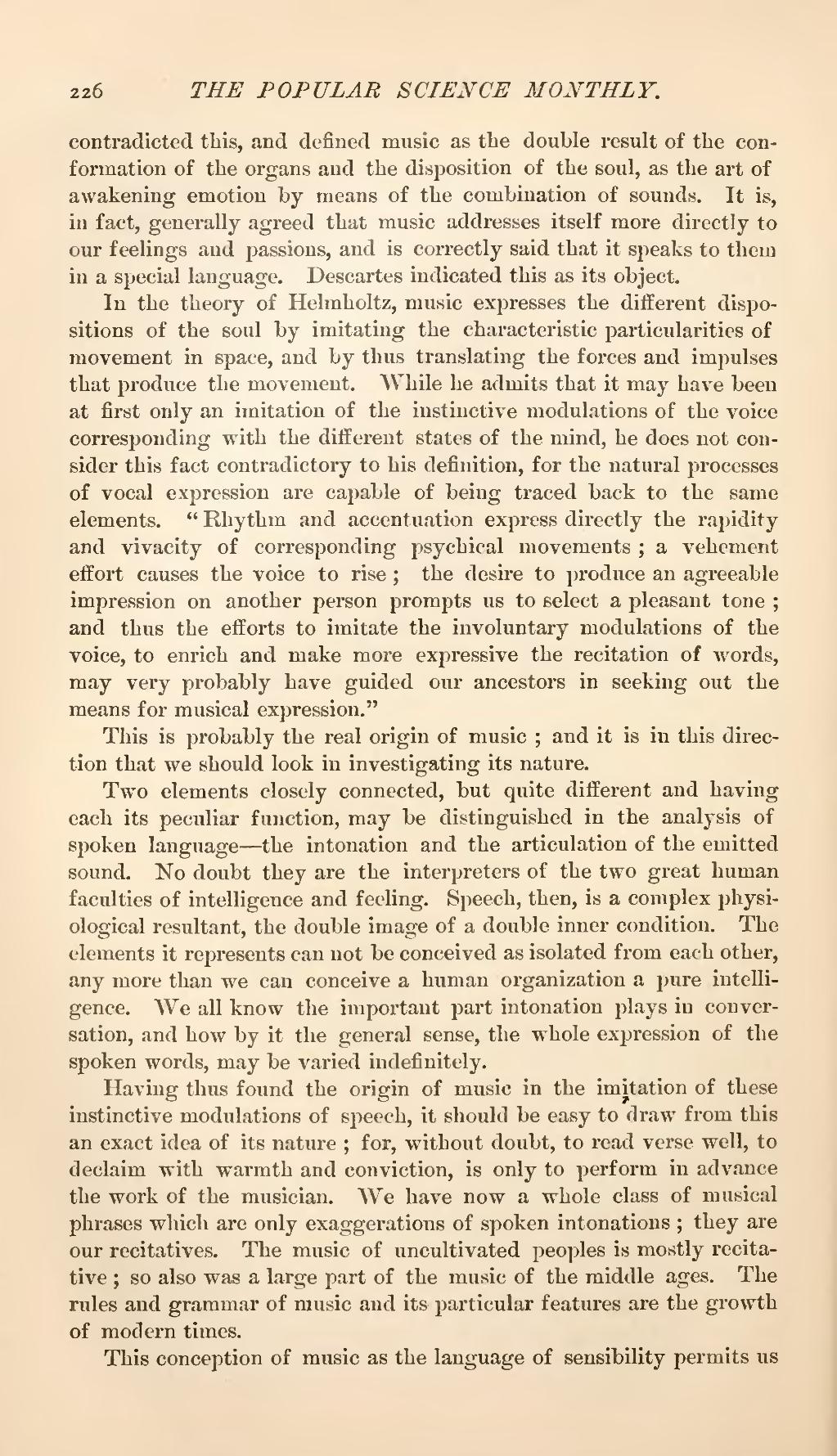contradicted this, and defined music as the double result of the conformation of the organs and the disposition of the soul, as the art of awakening emotion by means of the combination of sounds. It is, in fact, generally agreed that music addresses itself more directly to our feelings and passions, and is correctly said that it speaks to them in a special language. Descartes indicated this as its object.
In the theory of Helmholtz, music expresses the different dispositions of the soul by imitating the characteristic particularities of movement in space, and by thus translating the forces and impulses that produce the movement. While he admits that it may have been at first only an imitation of the instinctive modulations of the voice corresponding with the different states of the mind, he does not consider this fact contradictory to his definition, for the natural processes of vocal expression are capable of being traced back to the same elements. "Rhythm and accentuation express directly the rapidity and vivacity of corresponding psychical movements; a vehement effort causes the voice to rise; the desire to produce an agreeable impression on another person prompts us to select a pleasant tone; and thus the efforts to imitate the involuntary modulations of the voice, to enrich and make more expressive the recitation of words, may very probably have guided our ancestors in seeking out the means for musical expression."
This is probably the real origin of music; and it is in this direction that we should look in investigating its nature.
Two elements closely connected, but quite different and having each its peculiar function, may be distinguished in the analysis of spoken language—the intonation and the articulation of the emitted sound. No doubt they are the interpreters of the two great human faculties of intelligence and feeling. Speech, then, is a complex physiological resultant, the double image of a double inner condition. The elements it represents can not be conceived as isolated from each other, any more than we can conceive a human organization a pure intelligence. We all know the important part intonation plays in conversation, and how by it the general sense, the whole expression of the spoken words, may be varied indefinitely.
Having thus found the origin of music in the imitation of these instinctive modulations of speech, it should be easy to draw from this an exact idea of its nature; for, without doubt, to read verse well, to declaim with warmth and conviction, is only to perform in advance the work of the musician. We have now a whole class of musical phrases which are only exaggerations of spoken intonations; they are our recitatives. The music of uncultivated peoples is mostly recitative; so also was a large part of the music of the middle ages. The rules and grammar of music and its particular features are the growth of modern times.
This conception of music as the language of sensibility permits us

